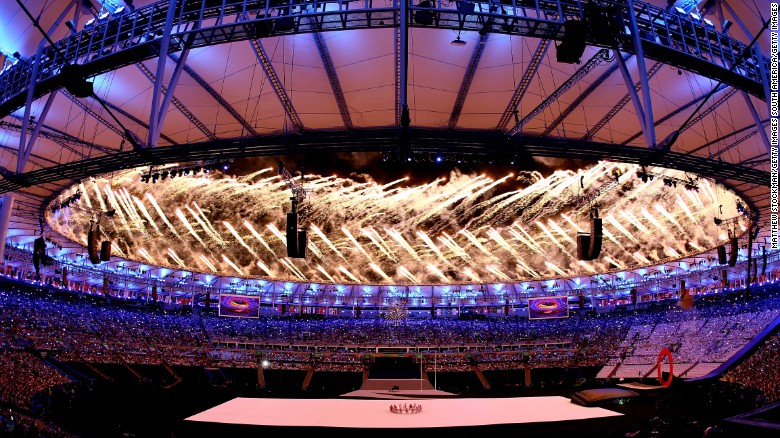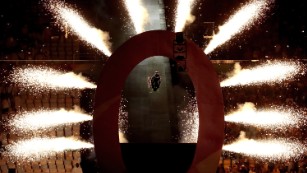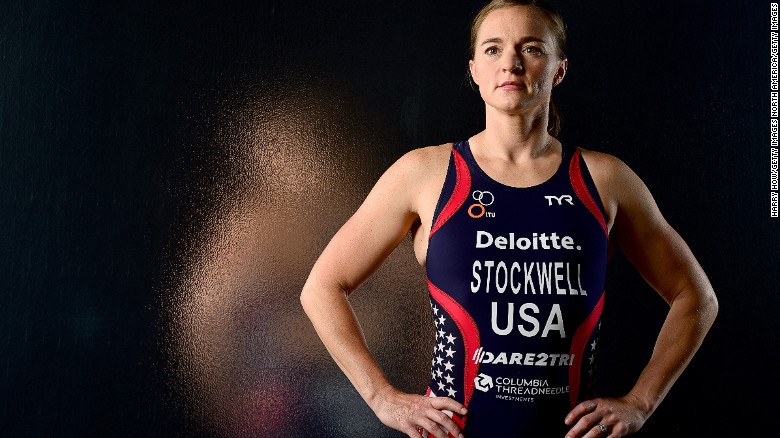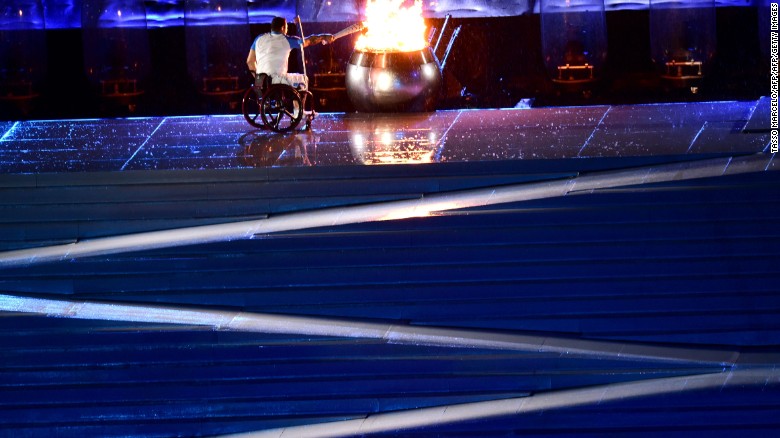

Just over two weeks ago, when the Olympics drew to a close, there were concerns the Paralympic Games would even go ahead at all.
Whether it was a lack of ticket sales, the closing of venues or several teams lacking the funding to send athletes to Rio, it seemed there were no end of obstacles standing in the way of organizers.
“Never before in the 56-year history of the Paralympic Games have we faced circumstances like this,” International Paralympic Committee president Philip Craven told reporters at the time.
However, as the first fireworks exploded and then disappeared into the sky above Brazil’s iconic Maracana stadium, those worries became a distant memory.
No Olympic hangover
If there were any concerns Rio would struggle to regain the high experienced during the Olympics, they were quickly dispelled as Aaron Fotheringham — otherwise known as Aaron Wheelz — drew rapturous cheers from the crowd as he back-flipped through the air.
The extreme wheelchair athlete got the opening ceremony under way against a backdrop of fireworks exploding out of the Maracana’s circular roof.
What followed was four hours of color, samba and 4,300 Paralympic athletes partying their way into the night — those that didn’t have to be up early to compete that is.
Winter Paralympic medalist Amy Purdy put her dancing skills, which she honed during “Dancing with the Stars,” on display as she performed with a robot.
The ceremony ended with an emotional passing of the Paralympic torch, during which 1984 Paralympian Marcia Malsar fell to floor, but was met by a deafening roar from the crowd as she stood up and completed her leg.
Clodoaldo Silva, a national hero and six-time Paralympic champion, was given the honor of finishing the relay and was poignantly faced by a flight of stairs, which turned into a ramp to allow him to ignite the cauldron.
Ticket concerns
Empty seats and half-empty stadiums was one of the headlines the Olympic Games could never quite escape from. There had been concerns the Paralympics would follow suit, or attract even fewer spectators.
Rio organizers said that just 12% of tickets had been sold two weeks ago, but one look at a near-full Maracana during the opening ceremony immediately quelled any lingering fears.
In fact, after announcing on Sunday that 1.5 million tickets had been sold, organizers are now hopeful of a complete 2.5 million sell-out.
It’s yet to be seen how ticket sales transfer into stadium attendances but the outlook is much more positive than it was a fortnight ago.
Human spirit
From Bermuda with one Paralympic athlete to China with over 300, you’ll find inspiring stories of sacrifice and determination throughout the competing nations.
Team USA’s Melissa Stockwell will be attempting to become the first Paralympic triathlon champion in history at Rio 2016.
The 36-year-old was the first female American soldier to lose limb in active combat during the Iraq War and is now competing in her third Games after making her debut at Beijing 2008.

Her compatriot Allison Jones, who was born without her right femur, was chosen as her country’s flag bearer and holds the honor of being one of few athletes to win gold medals in both the Paralympics and winter Paralympics.
Italy’s Alex Zanardi had both his legs amputated after a horrific CART crash in Germany 15 years ago and is now aiming to defend his road race and time trial titles in hand cycling’s H4 class.
And while most 74-year-olds are enjoying retirement, Libby Kosmala will be competing in her 12th Paralympic Games.
The Australian made her debut at Heidelberg 1972 as a swimmer, switching to shooting four years later and never looked back.
Missing out on a medal at London 2012 almost convinced her to hang up her rifle, but the temptation to add to her 13 medals proved too tantalizing.
7,000 miles away…
After the IPC imposed a blanket ban on all Russian athletes for alleged state-sponsored doping, the country decided it would host its own Games, much like it did for its banned Olympic athletes.
Over 80 Paralympians were affected by the IPC’s ban and Russia will host its alternate Games on September 8 and 9 outside of Moscow, over 7,000 miles away from Rio.
While events such as swimming and athletics will be competitive, due to the lack of para-athletes in other disciplines many events will be demonstrations.
There will be an opening ceremony, medals available and Russia’s sport minister, Vitaly Mutko, will also be present over the two days of competition.
‘The party’s only just beginning’
It would be unwise to pretend all is now well, as a mention of government from Carlos Arthur Nuzman, president of the Rio Organizing Committee, drew loud and extended boos from the Maracana crowd, forcing him to stop mid-speach for several minutes.
As did an appearance from Brazil’s new president Michel Temer, who officially declared the Games open with a remarkably short speech so as not to draw more ire from the crowd.

Aside from those two sour moments, the opening ceremony dazzled and carried important messages of equality and inclusion throughout.
As the popular song with the lyrics ‘the party’s only just beginning’ played out over the Maracana sound system, it served as a reminder of the 11 days of incredible sport that lie ahead.
As reported by CNN
